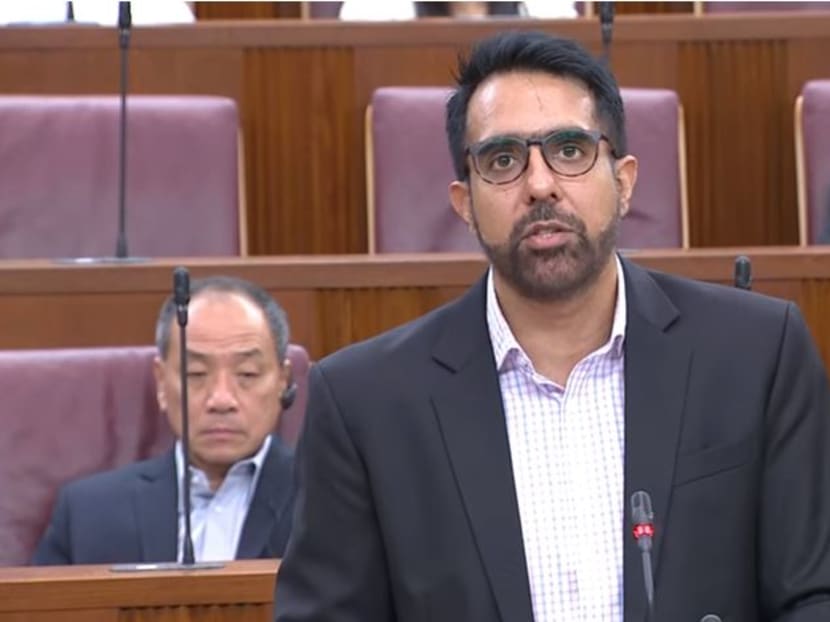Workers’ Party cites ‘inherent inequality’ of generational packages, calls for permanent scheme for seniors
SINGAPORE — Workers’ Party (WP) Members of Parliament (MP) zoomed in on the Merdeka Generation Package on the first day of Parliament’s debate on Budget 2019, with party chief Pritam Singh leading the charge.

Workers’ Party chief Pritam Singh called for a “universal and permanent” senior citizen healthcare package for all Singaporeans from the age of 60.
SINGAPORE — Workers’ Party (WP) Members of Parliament (MP) zoomed in on the Merdeka Generation Package on the first day of Parliament’s debate on Budget 2019, with party chief Pritam Singh leading the charge.
They raised the issue of the fairness in periodic benefits such as the Merdeka Generation Package, as well as the Pioneer Generation Package announced in 2014.
Such packages led to “inherent inequality for some of our senior citizens who, by virtue of their year of birth, stand to miss out on a few years of medical benefits because of the interval between one-time packages”, said Mr Singh on Tuesday (Feb 26).
Instead of such generational packages, Mr Singh called for a “universal and permanent” senior citizen healthcare package for all Singaporeans from the age of 60.
“The centerpiece of such a scheme should be aimed at alleviating the out-of-pocket expenses for primary healthcare, so as to address cost of living for all Singaporeans from the age of 60.”
Mr Singh added that a permanent and universal senior citizen package would also represent “a critical symbol” of integration for all Singaporeans.
WP Non-Constituency MP Daniel Goh said that subsidies for outpatient services and the automatic enrolment of seniors in the Community Health Assist Scheme (Chas) for the Pioneer Generation and Merdeka Generation packages respectively had created an expectation that future generations would also be automatically enrolled in Chas when they turned 60.
Supporting such a measure, Associate Professor Goh reiterated the WP’s call for future generations of seniors to be automatically enrolled in Chas.
Insurance schemes such as Medishield Life and Careshield Life, which make it compulsory for Singaporeans to “help each other pay for hospitalisation and disability”, have helped the government to save on healthcare costs, he said.
“In return, the government should make it compulsory that it provides for primary care subsidies for all future generations of seniors, so that we can all age with independence like the Pioneers and Merdekas,” said Assoc Prof Goh.
He also called for the government to remove the retirement age, raise the re-employment age to 70 and restore the total Central Provident Fund contribution rate of older workers to 40 per cent. The total CPF contribution rates for workers aged above 55 currently range from 12.5 to 26 per cent of their wages.
“Doing this now…is very appropriate. From the perspective of the economy and society, it is a waste of human capital for workers to retire prematurely, when their skills and experience are still invaluable,” he said.
However, workers should be “empowered” to retire in their 60s if they wish to do so, said Assoc Prof Goh. “To enable our workers to work if they can and want to work, by removing the retirement age, does not mean (getting) Singaporeans to work till they die. It is to reform the system so that Singaporeans do not have to worry about their finances and can retire in their 60s if they want to, but can also continue to work if they want to,” he added.
STRUCTURAL SUBSIDIES IN PLACE, SAYS CHEE
Responding to WP’s call for a universal and permanent healthcare package for senior citizens, Senior Minister of State (Trade and Industry and Education) Chee Hong Tat said that the Government has a number of healthcare subsidies that are “structural” and not cohort-based.
“In hospitals, specialist outpatient clinics, in our nursing homes, there are also structural subsidies and these are means-tested because we want to give more help to low and mid-income Singaporeans,” said Mr Chee.
He also said that polyclinic subsidies are universal, with seniors who go to polyclinics receiving additional subsidies compared to other patients.
Mr Chee said it was inaccurate for Assoc Prof Goh to describe schemes such as Medishield Life and Careshield Life as getting Singaporeans to pay for each other. “Actually the Government pays quite a bit of the premium through premium subsidies and additional premium support. This is part of the sharing,” said Mr Chee.
“When we introduced packages that are cohort-based, like the Pioneer Generation Package and the Merdeka Generation Package, these are on top of structural subsidies that are already provided in the system for all Singaporeans,” he added.
Whether the government could provide for future generations would depend on whether Singapore continues to have constructive politics, good government, a strong economy and a cohesive society, he said.
DIESEL TAX INCREASE
WP’s Non-Constituency MP Dennis Tan questioned the increase in diesel tax, which was increased from 10 cents to 20 cents per litre by Finance Minister Heng Swee Keat. Mr Tan said that despite road tax rebates, operators and vehicle owners would have to pass the increase to their customers eventually.
“In short, this diesel tax increase will mean an increase in transportation expenses, which will translate to higher costs for all kinds of businesses in Singapore requiring directly or indirectly transportation.”
He added that while environmental justification for the move was understandable, the vast majority of existing vehicles using diesel have no way to make an immediate switch to non-diesel vehicles.
“The increase in diesel tax will only increase the cost for businesses, especially our small and medium enterprises, in an economic climate that is not rosy at all,” said Mr Tan.











